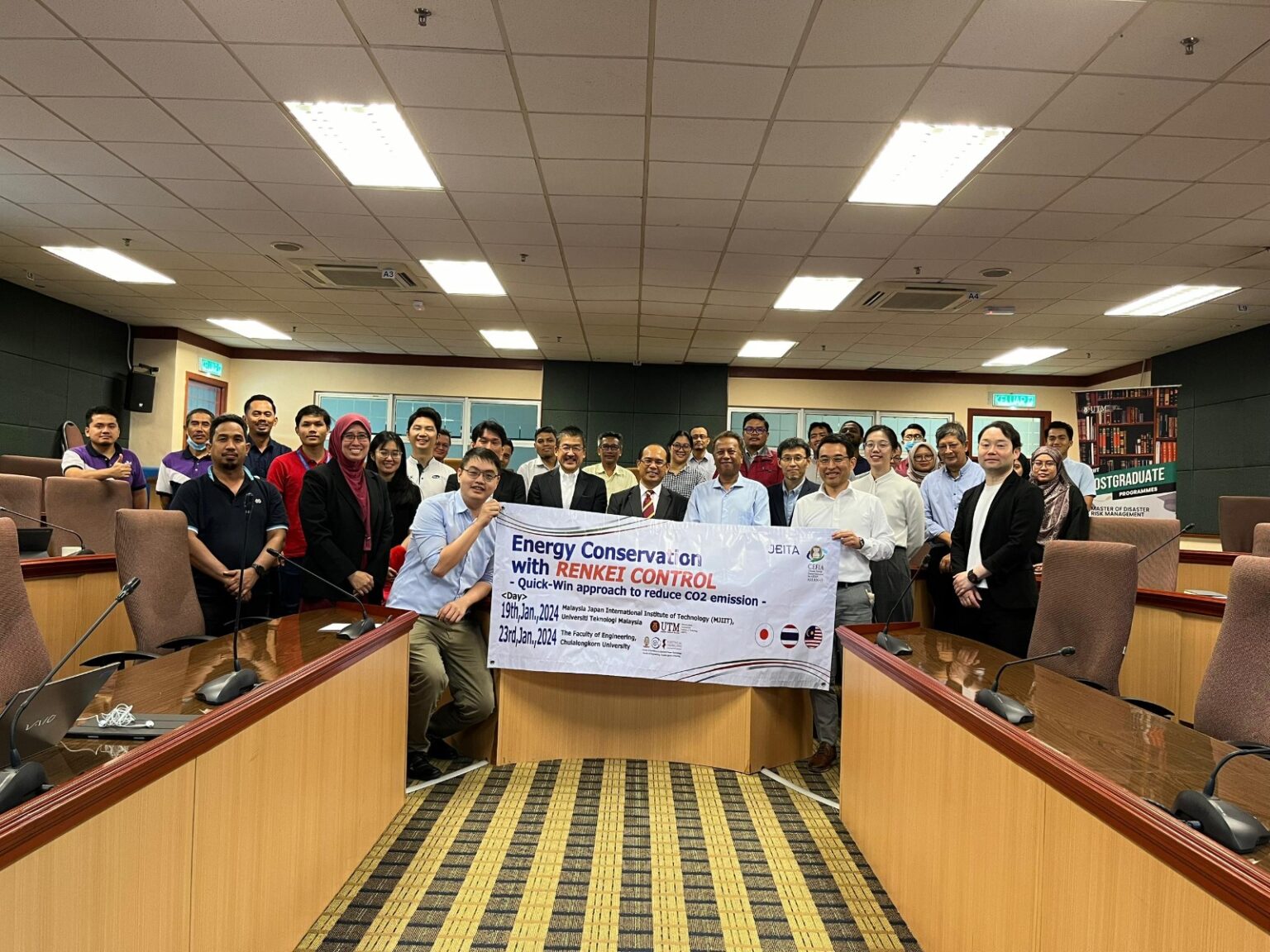
24th January 2024
Energy Conservation with RENKEI Control – A Quick-Win Approach to Reduce Energy and CO2 Emissions
In Article, Latest News
19 January 2024 – Japan Electronics Information Technology Association (JEITA) in collaboration with Universiti Teknologi Malaysia (UTM) organized a half day seminar on ‘Energy Conservation with RENKEI Control’, which is a quick-win approach to reduce energy and CO2 emissions. RENKEI Control is a real-time plant operation optimization through control. It is a programme under the CEFIA (Cleaner Energy Future Initiative for ASEAN) and is an initiative proposed by the Japanese government to promote the CO2 decarbonization in ASEAN.
During the seminar, Mr. Mike Suzuki from JEITA shared on how RENKEI Control could be one of the quick-win energy saving measure strategies that industries and commercial buildings can adopt for their facilities to improve their energy efficiency. RENKEI Control does not involve major equipment change and is basically optimizing multiple equipment to reduce energy consumption via real time control system optimisation. It only adds a RENKEI Control server on top of existing companies’ control systems and can be installed in less than 6 months. Examples of RENKEI control applications include boiler, chiller and air compressor utility plants. ‘Malaysia has the potential for significant reductions of energy and CO2 every year by using RENKEI Control’, said Mr Mike.
Prof Sharifah Rafidah Wan Alwi from UTM and the R&D director of the UTM spinoff ESCO OPTIMISE, in her Keynote session highlighted that energy auditors and energy managers in Malaysia should be exposed to the RENKEI Control strategy which is an IR4.0 technology for energy optimisation. The initiative can support the government’s energy decarbonization and energy efficiency improvement initiatives. Prof Sharifah who heads the consortium of UTM, JEITA, Waseda University and De La Salle University under the AUN/SEED.net R-TUNE Research and Education Consortium Grant (RED-UC), is currently spearheading the developing a RENKEI Control assessment tool that can be used by energy auditors, energy managers and energy service companies (ESCOs) to assess the feasibility and potential energy savings of implementing RENKEI Control in a company. In addition, capacity building programs on RENKEI Control awareness for energy auditors and energy managers will also be organized for ASEAN countries under the R-TUNE programme.
This article is published on 24th January 2024 by Optimal System Engineering




